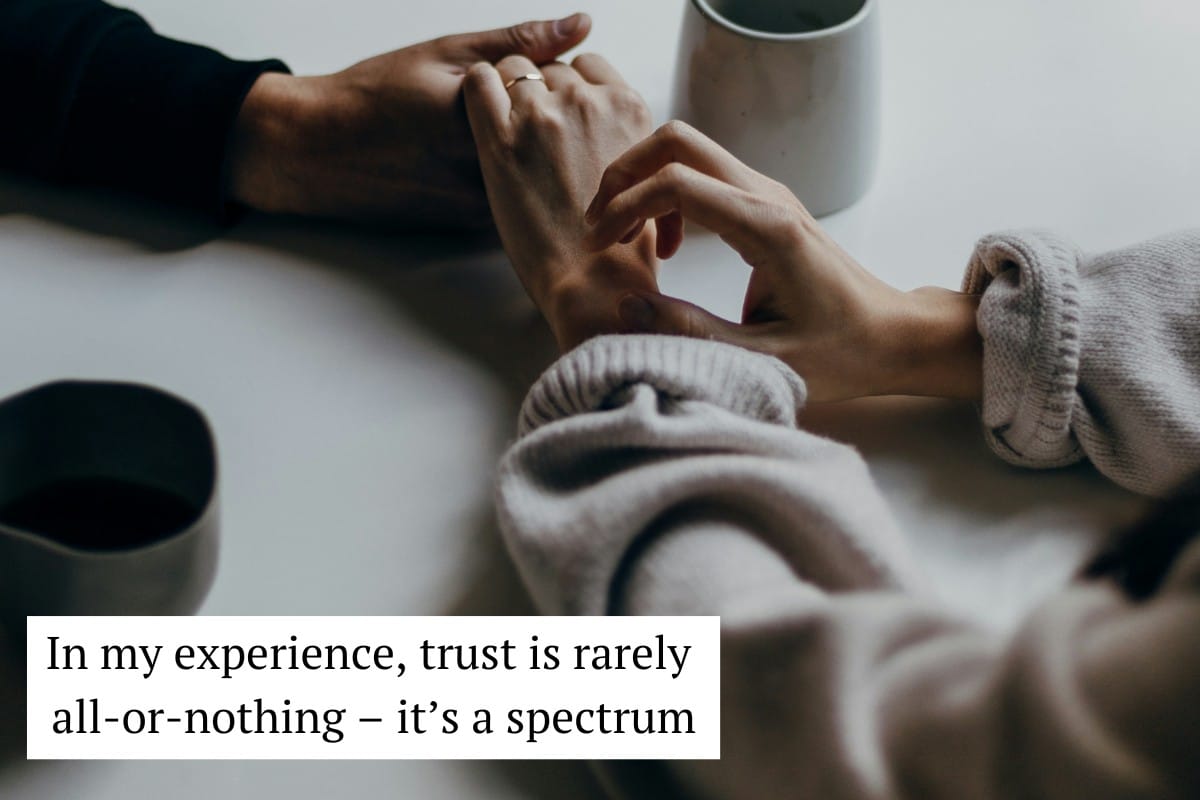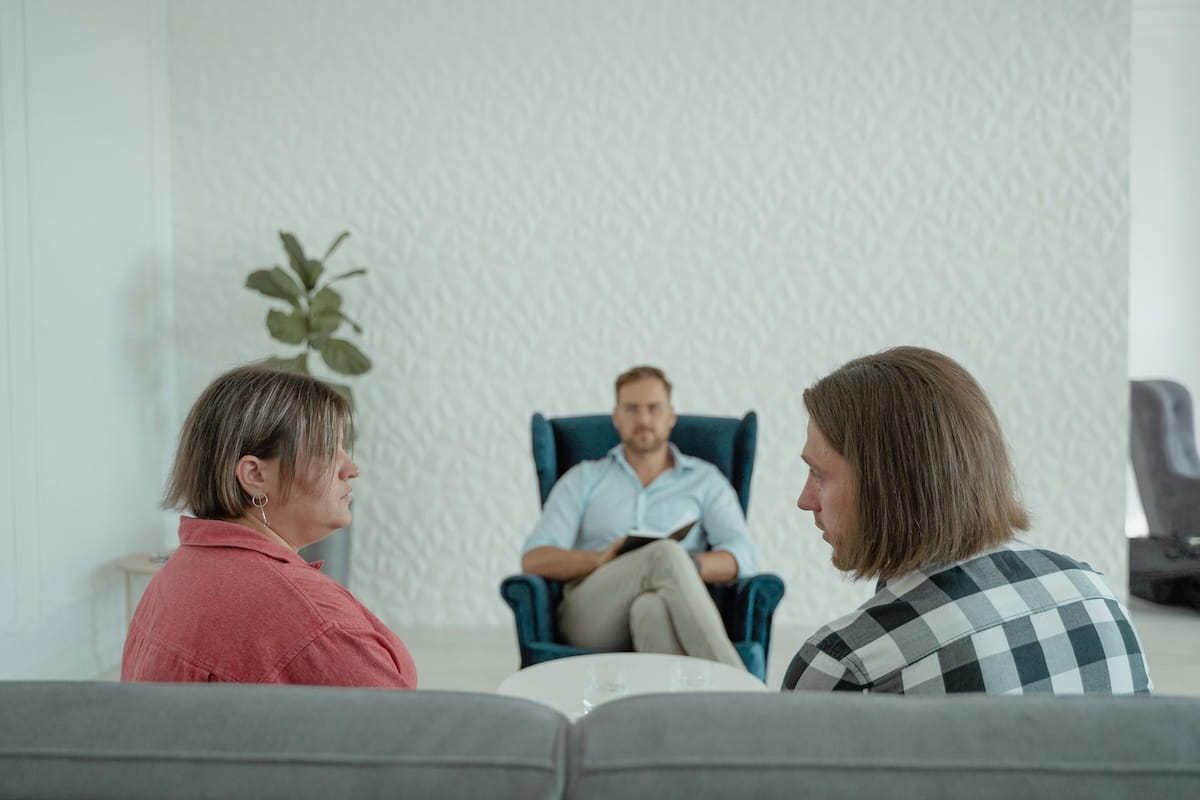Uncovering the steps to help you move forward following betrayal
From soap plots to epic poetry, the experience of betrayal in our romantic relationships often comes shrouded in high drama. But that’s only one side of the story. Below the surface, betrayal, whether it be an affair or another means of breaking trust – such as obscuring financial issues, addiction, details of your history, or even health problems – can have a devastating and long-term impact on individuals on either side of the rift.
The American Psychological Association reports that 20–40% of divorces are caused by an affair. And while statistics on other types of betrayal are not formally available, lack of communication and emotional distance are often cited as key factors in the lead-up to separation. But does it have to be that way? And can trust ever truly be rebuilt?
At the start of the 21st century, psychologist Jennifer Freyd developed ‘betrayal trauma theory’, which describes the impact following a person’s trust being violated by a person or system that they rely on for survival – most often a parent or carer. In the decade that followed, other psychologists worked on this theory to expand it to include partner betrayal trauma. Betrayal trauma can lead to a number of different things, including:
‘Betrayal blindness’. When you ignore the signs of betrayal – either consciously or unconsciously – in order to try to preserve the relationship.
Trust issues in the current or new relationships. You could struggle to trust a partner, even without evidence of wrongdoing.
Re-victimisation. A betrayal can sometimes alter your idea of what ‘love’ looks like, which can leave you open to re-victimisation either by a new partner or the same one.
Low self-esteem. You may start to think that you deserved the betrayal, or that you are unable to have a healthy relationship.
Other mental health conditions. Betrayal can lead to other problems such as depression, anxiety, and even PTSD.
Finding a way forward
In answer to the question of whether it’s possible to fully repair trust after a betrayal, couples therapist Shan Merchant has a straightforward answer, with some key caveats.
“Yes, trust can be rebuilt after betrayal. However, it’s important to understand that it’s not about restoring the relationship to how it once was,” she says.
“Betrayal changes things. The goal isn’t to go back, it’s to create something new based on real honesty, openness, respect, and a commitment to growth.”
As Shan sees it, trust is something that is earned back slowly over time, following a series of consistent actions. It can’t be won back by apologies alone, but instead, it needs to follow the individual taking full responsibility for their actions, and being willing to sit down and have difficult conversations.

“In my experience, trust is rarely all-or-nothing – it’s a spectrum,” Shan continues. “You might start by trusting your partner only 5% after a betrayal, then it builds to 50%, 70%, and so on. It may never return to 100%, and that’s OK. Instead, it becomes a conscious choice; you choose to trust and stay in the relationship. You’re saying: ‘I believe in you. I see the effort, and I’m willing to rebuild with you.’”
Common pitfalls
When it comes to taking steps to navigate repairing trust in a relationship, most of us aren’t experts. This means that often we’re guided by the things that we feel in the moment, rather than thinking calmly and rationally about what we really want and need. And that’s where we can sometimes go wrong.
“A common mistake couples make after a betrayal is avoiding therapy, and trying to ‘white-knuckle it’ on their own,” Shan adds. She points to the example of navigating the aftermath of an affair, explaining that often these things happen when one partner lacks the tools or skills to communicate their feelings openly and honestly. “Therapy will teach these couples the skills they need to have honest and safe conversations, and to really listen,” she explains. “For couples working through affairs, this can be a delicate, sometimes volatile, and very vulnerable process – and they need a skilled therapist to hold the space for them so they can work through it.
“I also commonly see people holding back and lying to protect their partner, because they are afraid to hurt them. This usually ends up serving as more evidence that they can’t trust you. And another mistake is expecting the hurt partner to ‘get over it’; rushing the process of repair, not realising that their partner is in a different position in the healing process. No one grieves or recovers at the same rate. Be willing to be painstakingly patient, to hear your partner’s feelings and validate them.”
A two-sided approach
In order to rebuild trust, there needs to be a willingness and effort from both parties. And Shan has advice for each side:
To the person responsible for the betrayal: “Be patient, listen, take responsibility, say sorry (multiple times) – your hurt partner really needs to hear this. Show that you really care. Tell them: ‘You are important to me. I am committed to our relationship.’ Offer reassurance. Working through an affair is incredibly scary (for both partners) and both of you need lots of reassurance, daily.”
To the person who was betrayed: “Healing takes time, and it’s important to go at your own pace. Don’t rush into forgiveness, and hold off making any major decisions for a while. Allow yourself the time you need to process and decide what’s best for you. Look after yourself, get support, speak to trusted friends, and have your own therapy. Ask for what you need from your partner in terms of clarity, space, and reassurance.”
A difficult but important step that Shan suggests is coming to the understanding that both partners played a role in the betrayal. While one partner may have committed the betrayal, there may be contributions on both sides that led to the connection breakdown over time.

“If you really want to build a new relationship after an affair, you both have to be willing, if not determined, to take an honest look at what those contributions were,” she explains. “After having helped many couples regain trust, I can guarantee that a relationship’s breakdown is never one-sided. We are all human and we make mistakes. Your success will be directly linked to your willingness to learn from them.”
Forging a path forward
What is clear to see is that burying your head in the sand following a betrayal can only lead to more hurt, as the fundamental issues that lead to it are left unresolved. The spectrum of betrayal is vast, each example will need a different approach, and sometimes – especially in cases involving any kind of abuse – ending a relationship is the right thing to do. But, for those who wish to – with the right support and approach –trust can be rebuilt, piece by piece.


Comments